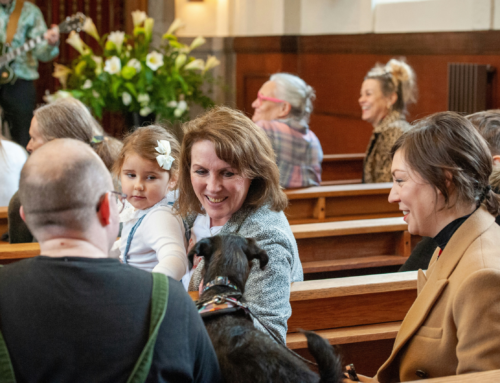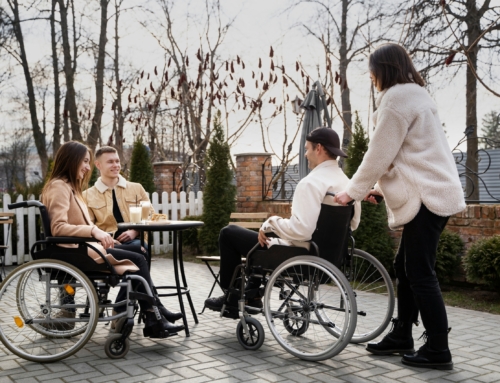We are pleased to welcome Dr. Bethany McKinney Fox to the forum today. She has recently written the wonderful book Disability and the Way of Jesus: Holistic Healing in the Gospels and the Church (IVP Academic, 2019), which we encourage you to check out by clicking on the image to the right!
When I first really dug into exploring Jesus in the Gospels, I encountered someone who offered love, liberation, and wholeness to people who needed it in the midst of structures and systems that didn’t always do the same. Some of this happened for people with various illnesses and/or disabilities, and people experienced radical transformation and healing in their lives. At the same time, in my relationships with people with disabilities today, I’ve heard many stories where people don’t experience those same things – love, liberation, and wholeness – in the contexts of their churches or Christian communities. Sometimes they experience wounding by a church’s supposed “healing” practices that make assumptions about what someone’s body or mind needs to be like, along with theories that blame the person for why they don’t conform to these standards. More often, though, it’s less direct, and is simply a lack of authentic welcome, an obliviousness to the gifts and vocations of people with disabilities, or an inaccessible environment (physically, socially, intellectually, and in other ways).
I wondered: what are we missing? And how can our churches – as communities of people following Jesus together – better embody his way of healing that actually does heal, especially for people with disabilities who too often don’t experience this in faith communities?
A first step would be to recognize that today we tend to equate “healing” with “curing.” In our medicalized culture in the West, when we say “healing” in relation to someone with a diagnosis or disability, we’re usually referring to changing their body or brain; but that wasn’t the full picture in Jesus’ day. Back then the concept of health or well-being (shalom) was much more holistic – it included not just our physical characteristics but other things, like: our social relationships, connection to God, and how we were regarded by our larger community. Understanding that helps us recognize why some of the narratives of Jesus “healing” someone in the Bible are so long. If the only thing that mattered for someone blind was that they see again, their story could be told in a couple of verses. But when we understand healing to be a comprehensive work in someone’s life as people in the first century did, it makes sense that the Gospel writers include so many other details, like, how the crowd responded, Jesus’ words to the person, and how the person’s spiritual life and sense of personal identity changed as well.
Following Jesus in our faith communities – in particular, participating in Jesus’ way of healing – is an invitation to be empowered by the Spirit to make space for the holistic transformation of people’s lives (as our lives are holistically transformed, too). Thinking specifically about people with intellectual or developmental disabilities, a number of churches do intentional and important work of uplifting their gifts, advocating alongside them for better supports and opportunities in their neighborhoods, and making space for people of all abilities to form authentic friendships and worship together. Often, though, this is done in response to a need or because of a general notion of Christian love – and there is certainly nothing wrong with that! But how much more deeply could we consider and embody these practices were we to realize they are directly resonant with the healing way of Jesus in the world?

Bethany McKinney Fox (PhD, Fuller Theological Seminary) is the author of Disability and the Way of Jesus: Holistic Healing in the Gospels and the Church (IVP Academic, 2019). She is adjunct professor of Christian Ethics at Fuller, and founding pastor of Beloved Everybody Church, a community of people with and without intellectual disabilities, participating and leading together in Los Angeles, California.



